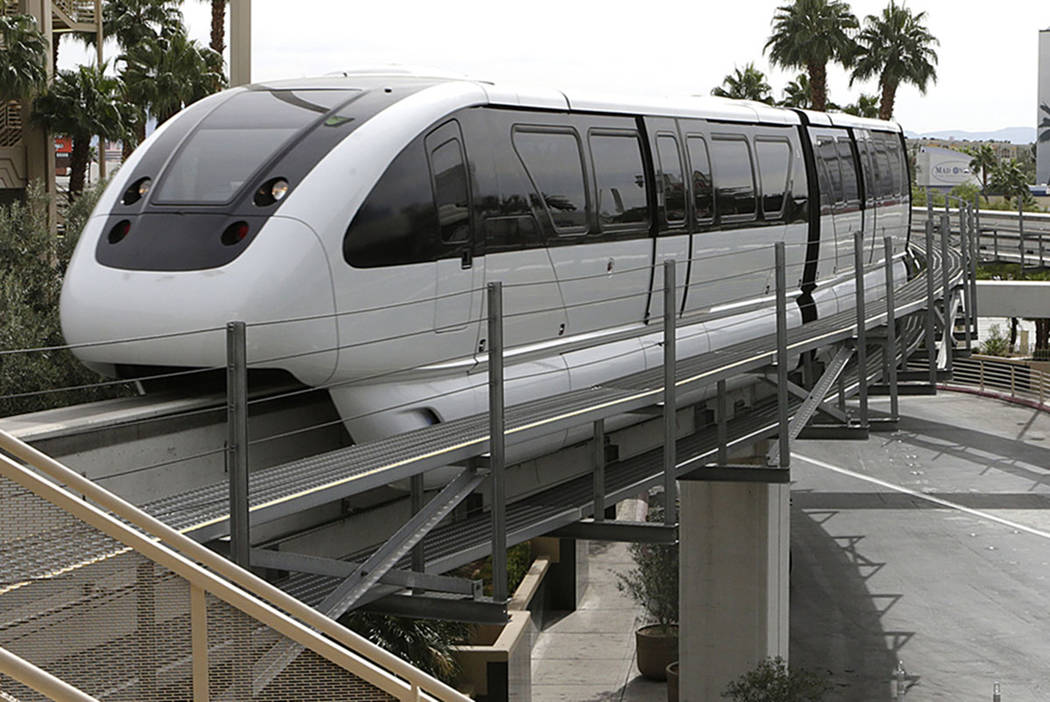EDITORIAL: Monorail receives a mystery $10 million lifeline
The biggest risk taker on the Strip isn’t a gambler. It’s the mystery organization bailing out the Las Vegas Monorail Co.
On Monday, the Monorail Co. needed $10 million to pay off outstanding bonds and accumulated interest. It didn’t have the money until it secured a last-minute loan. Details were scant. As the Review-Journal’s Michael Scott Davidson reported, Monorail Co. officials wouldn’t reveal the lender, loan amount or interest rate.
This isn’t the only information the Monorail Co. has kept from the public. On its website, it has sections on ridership and finances, but the latest statistics are from 2017. If the Monorail Co. was succeeding, it would make sense to continue sharing those statistics.
The Monorail Co. doesn’t have a track record of financial success. It filed for bankruptcy in 2010 just 6 years after opening its current 3.9 mile route. The State of Nevada issued $650 million in bonds for the project. When it emerged from bankruptcy in 2012, its debt had been reduced to just $13 million. State leaders had wisely structured the bonds to avoid taxpayer liability. The project’s investors, however, received quite a haircut. Just seven years later, it took a last-minute rescue to avoid defaulting on a much smaller loan.
The Monorail Co. believes that the solution to not being able to pay its bills is incurring more debt. Its leaders want to expand the monorail to the MSG Sphere and Mandalay Bay at the cost of $172 million. That’s a $62 million increase over its original estimate two years ago. Monorail Co. officials believe these expenditures would boost ridership from 5 million a year to 7 million a year and double its ticket revenue by 2025.
This is the same organization that predicted daily ridership of 54,000 when the monorail opened in 2004. Actual ridership topped out at around 28,000 in 2005. It’s worth remembering this when proponents of light rail try to revive the for-now rejected light rail project along Maryland Parkway. Ridership projections from those with a vested interest in the project are rarely reliable.
In 2017, Monorail Co. President and CEO Curtis Myles said the company wouldn’t be able to repay its debt without the expansion.
Unsurprisingly, the Monorail Co. hasn’t been able to secure private financing for this boondoggle-in-the-making. In May, it asked the Clark County Commission for up to $135 million in taxpayer handouts. It said it needed a public guarantee to obtain a private loan. That means private lenders think the monorail expansion is a financially losing proposition.
If the Monorail Co. can find another mystery investor who thinks differently, more power to it. Just keep taxpayers out of it.






















